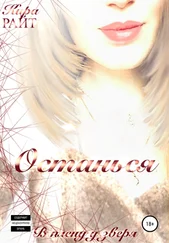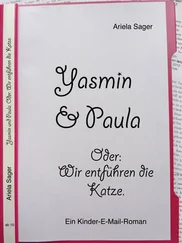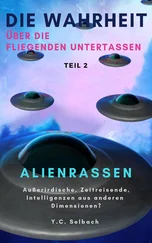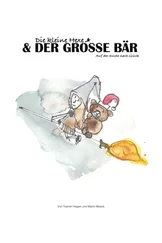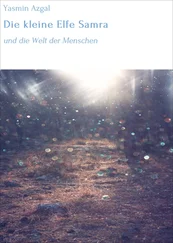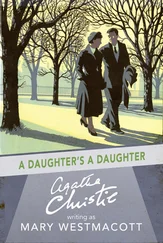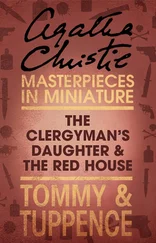Yasmin Azad
Stay, Daughter
© Каро, 2022
Все права защищены
If you want to understand today, you have to search yesterday
Pearl Buck
Glossary of relationships
Wappah – Father
Umma – Mother
Wappumma – father’s mother
Marmee – my father’s only sister. Marmee is the Tamil word for aunt.
Marma – my aunt Marmee’s husband. Marma is the Tamil world for uncle.
Asiyatha – father’s cousin – the adopted daughter of his mother’s only brother.
Rohani Cassim – great-grandfather. My mother’s father’s father.
Thalha Cassim – eldest daughter of Rohani Cassim. Being the sister of my mother’s father, she was my grand-aunt.
Kaneema Marmee – Thalha Cassim’s eldest daughter. My mother’s first cousin.
Fathuma Aunty – one of Thalha Cassim’s younger daughters, sister to Kaneema Marmee.
Zain Marma – one of my mother’s maternal uncles. Of all my grandmother’s many siblings, my mother was closest to him.
Zain Marmee – Zain Marma’s wife whom we affectionately called by her husband’s name.
Maraliya, Hidaya and Nabeesa, my father’s nieces – his only sister’s daughters.
Mackiya Thatha – my mother’s second cousin. Thatha is an honorific meaning “elder sister.”
Rameesa Marmee – the daughter of one of my father’s half-brothers. Having married one of my mother’s younger brothers, she was both my cousin and aunt by marriage.
Shinnamatha – one of several poor women who made a living in the Galle Fort by cooking food and helping out in the better off families.
Kadija Marmee and Zubeida Marmee – two of my mother’s close relatives who regularly visited our home.
Penny – my childhood friend in the Galle Fort. A Christian of Dutch Burgher descent. Her mother and father were Aunty June and Uncle Quintus.
For my beloved sons Kalid, Siraj and Jehan And for my nephews and nieces Rashid, Ayesha, Naima, Laila and Amal
With much affection
And stay in your houses, and do not display yourselves.
The Quran
We did not stay in our houses. Not in the way our grandmothers had, or our mothers. We went out a little more and veiled ourselves a little less.
Casting off the heavy black cloaks that had once shrouded females from head to toe, we covered ourselves, instead, in flimsy veils. Draped lightly around our heads, the silks and voiles fell casually from our shoulders, and in the minutes it took for us to get from front door to car, a stranger walking on the road could make out the features of our young faces, the curves of slender waists and hips. Sometimes, such a stranger fixed his eyes on us. And sometimes we looked back. Mothers drew our veils closer and hurried us away; you shouldn’t allow yourselves to be seen like that, they told us.
Like girls from infidel families, we went to school, and stayed there even after we had become “big.” And still more like them, but so unlike our mothers, some of us longed for more learning and dreamed about leaving home to get it. The elders shook their heads and cautioned: too much education could ruin a girl’s future.
The world outside was pressing in on us, and when I turned twelve, Wappah, thought it time to tell me a story. Many years ago, my father reported, when our country, the island of Ceylon, was still a British colony, an Englishman – perhaps the Governor himself – had invited a Muslim statesman to dinner. “Bring your wife too,” the important official said. “I have never met her.”
“Aaah,” came the reply. “That is not possible. She is in purdah and cannot be seen by men outside the family. But,” the Muslim man continued, as he pulled out a rose from a nearby vase, “look at this. It would be just like looking at her.”
My father beamed and nodded as he ended his story. I looked back and said nothing.
If we felt the stirring of wishes unknown to our mothers and grandmothers, we didn’t tell them. They would have been shocked, like Wappah, who had only known women like flowers.
Men are the protectors and maintainers of women.
The Quran, 4:34
Not three years after she had become a bride, Wappumma, my father’s mother, became a widow.
“She went into shock when they brought the news to her,” Aunt Asiyatha said. “Rolled on the floor and wailed. What was she going to do? Your grandfather had died in Bombay on the ship bringing him back from Mecca. ‘Who will guard us now, who will guard us?’ your Wappumma kept asking. She was six months pregnant too. Lost the baby.”
Aunt Asiyatha was my father’s cousin – the adopted daughter of his mother’s only brother. When, as a girl, I accompanied Wappah to his childhood home in the village of Shollai where his sister still lived, she was often there. Patting down a straw mat spread on the floor, my aunt would say, “Come sit here; I have some things to tell you.” I would sidle right up. As far back as I can recall, I latched on to anyone who would tell me a story.
Aunt Asiyatha spat out a stream of dark red betel juice and continued. “What was your Wappumma going to do? Your father was a toddler, and his sister only a little older than that. Who was going to look after them?”
“Didn’t Grandfather have money?” I asked.
“Yes, but he had all those children from his first marriage. He couldn’t leave everything to your grandmother. Soon, the money was used up, then the jewelry was sold, and all the plates and most of the furniture, and in a few years, there was nothing left.”
“Didn’t they own land?”
“All that came to nothing. The paddy field in Weeraketiya, she used to get a bag of rice once or twice a year, but the rest of the properties, nobody knows what happened to them.”
“What do you mean, no one knows what happened to them?”
Aunt Asiyatha leaned over and lowered her voice. “Don’t tell your father I told you, you know how he is when anyone speaks badly of his relations, but they say a man, one of our relatives, he brought your Wappumma all kinds of papers, got her to rub ink on her thumb and put it down, and one by one the properties were gone. We think they were sold off.”
“But what was written on those papers?”
“Allah, child, how would your grandmother have known?”
My father’s mother could not read or write. She couldn’t tell time or make out a calendar. She needed help counting money.
“When were you born, Wappumma?” I once asked her.
“When was I born? My mother told me it was during Uncle Omar’s wedding. Cousin Fathuma was just learning the aleph, bey, thay of the Quran, and her little brother had begun to eat solid food. That’s when I was born.”
“No, which year? How old are you?”
Wappumma knitted her brow and shook her head.
My grandmother’s life kept rhythm with the moon; she kept track of its waxing and waning. Every four weeks or so, when it seemed about time, she stepped out into the garden and searched the night sky. If she spotted what she was looking for – the faintest of crescents glowing in the dark – she hurried to announce that a new month had begun. Her days began when the stars came out; she said her Friday prayers on Thursday night.
Though she fathomed little about things outside her home, Wappumma was convinced she understood the workings of the world. Someone envious had cast the spell that had taken her husband and comfortable life away. How else could it all have ended like that? But she protected her family now. She hung amulets on her son and daughter – sachets of magical charms tied with thick black string and secured around arms and necks and waists. They warded off the evil eye and the evil tongue, and the many other evil vapors the whole village knew were waiting to enter the unsuspecting orifices of children. She said special prayers at nighttime, too, to keep away the demon jinns.
Читать дальше
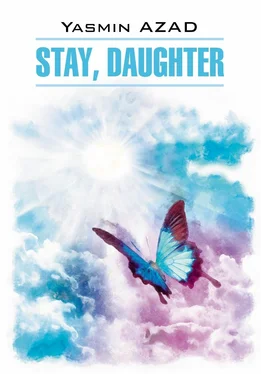

![Дочь 2 - Дочь кн [си]](/books/394766/doch-2-doch-kn-si-thumb.webp)
